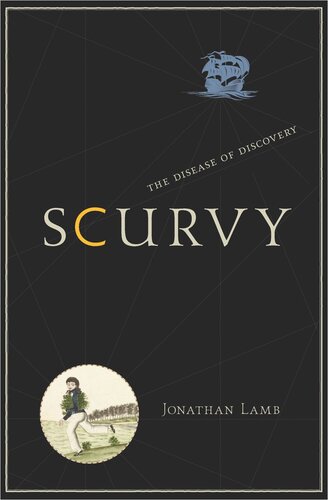

Most ebook files are in PDF format, so you can easily read them using various software such as Foxit Reader or directly on the Google Chrome browser.
Some ebook files are released by publishers in other formats such as .awz, .mobi, .epub, .fb2, etc. You may need to install specific software to read these formats on mobile/PC, such as Calibre.
Please read the tutorial at this link: https://ebookbell.com/faq
We offer FREE conversion to the popular formats you request; however, this may take some time. Therefore, right after payment, please email us, and we will try to provide the service as quickly as possible.
For some exceptional file formats or broken links (if any), please refrain from opening any disputes. Instead, email us first, and we will try to assist within a maximum of 6 hours.
EbookBell Team

4.1
80 reviewsScurvy, a disease often associated with long stretches of maritime travel, generated sensations exceeding the standard of what was normal. Eyes dazzled, skin was morbidly sensitive, emotions veered between disgust and delight. In this book, Jonathan Lamb presents an intellectual history of scurvy unlike any other, probing the speechless encounter with powerful sensations to tell the story of the disease that its victims couldn't because they found their illness too terrible and, in some cases, too exciting.
Drawing on historical accounts from scientists and voyagers as well as major literary works, Lamb traces the cultural impact of scurvy during the eighteenth-century age of geographical and scientific discovery. He explains the medical knowledge surrounding scurvy and the debates about its cause, prevention, and attempted cures. He vividly describes the phenomenon and experience of "scorbutic nostalgia," in which victims imagined mirages of food, water, or home, and then wept when such pleasures proved impossible to consume or reach. Lamb argues that a culture of scurvy arose in the colony of Australia, which was prey to the disease in its early years, and identifies a literature of scurvy in the works of such figures as Herman Melville, Samuel Taylor Coleridge, Francis Bacon, and Jonathan Swift.
Masterful and illuminating, Scurvy shows how the journeys of discovery in the eighteenth century not only ventured outward to the ends of the earth, but were also an inward voyage into the realms of sensation and passion.